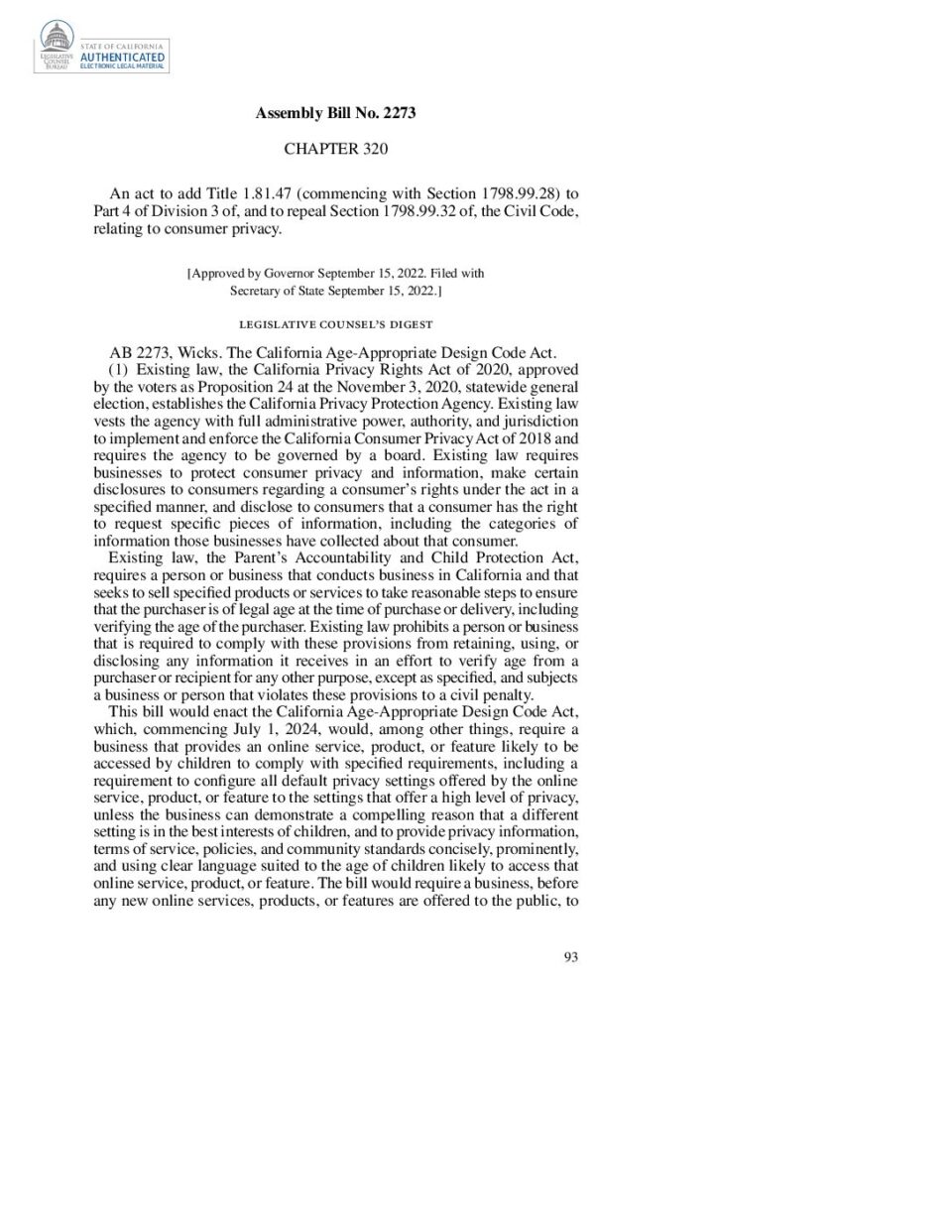California Age Appropriate Design Code
In September 2022 the California Age Appropriate Design Code Act (AB 2273, Asm. Wicks, D, and Asm. Cunningham, R) was signed into law by Governor Newsom, after passing the legislature with unanimous bipartisan support.
The Code, sponsored by 5Rights and benefiting from overwhelming popular and civil society support, requires companies that design digital products or services that are likely to be accessed by under 18-year-olds, to ensure young users a high level of data protection by design and default. The UK AADC, on which the California bill was modelled, has already influenced design-based changes for YouTube, Google, TikTok, Instagram, and the Google Play Store, suggesting the California AADC will bring significant improvements to the safety and empowerment of Californian children in the digital environment.
Baroness Beeban Kidron, the architect of the UK’s Age Appropriate Design Code and Founder of 5Rights Foundation, said:
“It is an enormous step that the Age Appropriate Design Code will be enforceable on both sides of the Atlantic. The overwhelming support the Code garnered among lawmakers in California – the home of Silicon Valley – and the broad popular support it commands across the world is an indication of the acute need for a new deal for children in the digital world.
“The AADC should now be recognised as a global standard for the privacy and safety of children online. It is incumbent on the tech sector to now put their unrivalled creativity and imagination at its service – and play their part in building the digital world children deserve. 5Rights will continue to support decision-makers and partners around the world to ensure the Code is taken up globally and enforced where it already exists.”
Upon its signature into law, the California AADC was challenged by the tech trade association NetChoice. In September 2024 a court upheld its key provisions, but it has yet to come into force.
5Rights continues to support the California AADC, which has inspired a spate of similar legislation across the US, and calls on tech companies to drop their legal challenge and support children’s privacy and safety online.

